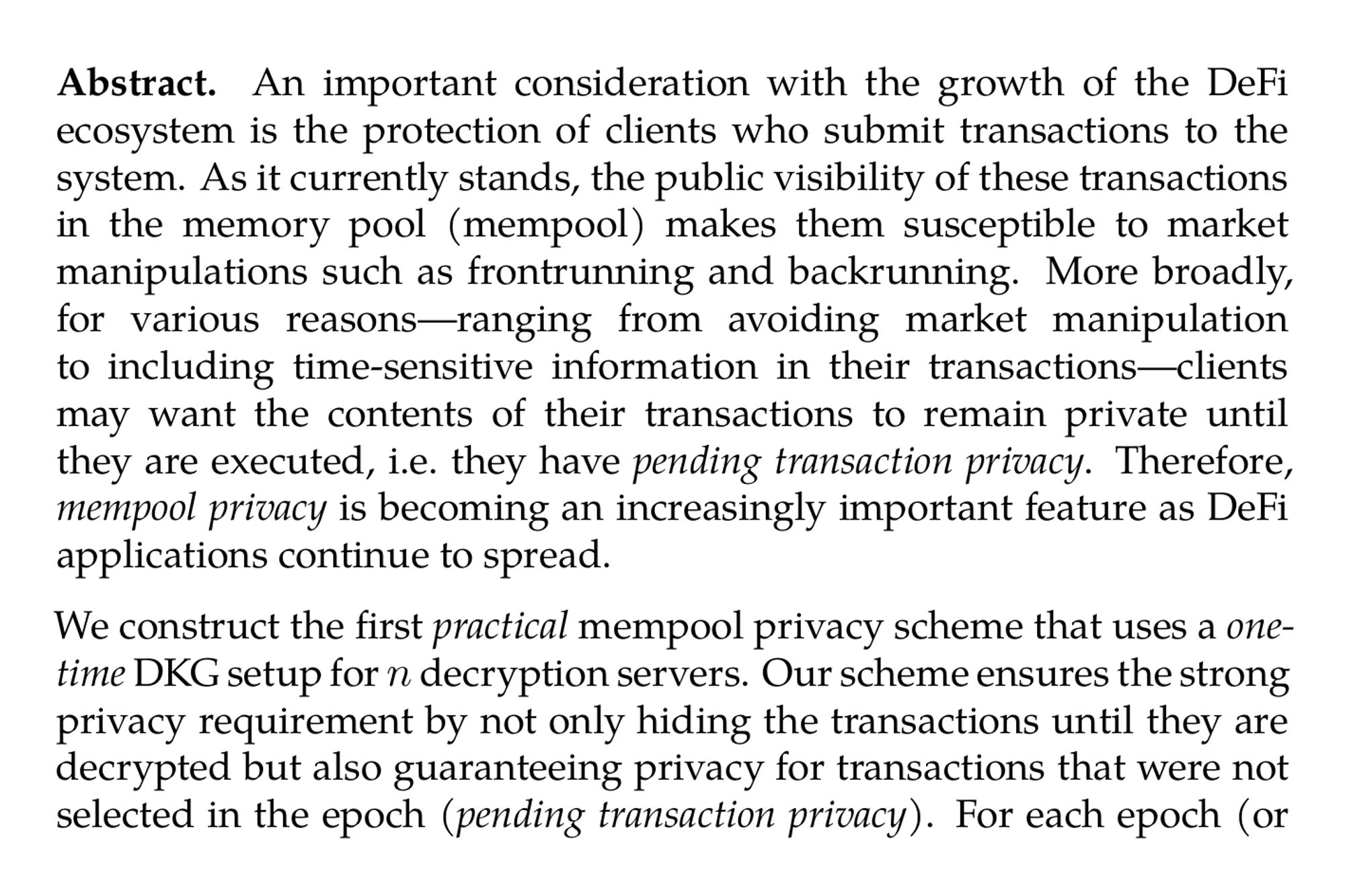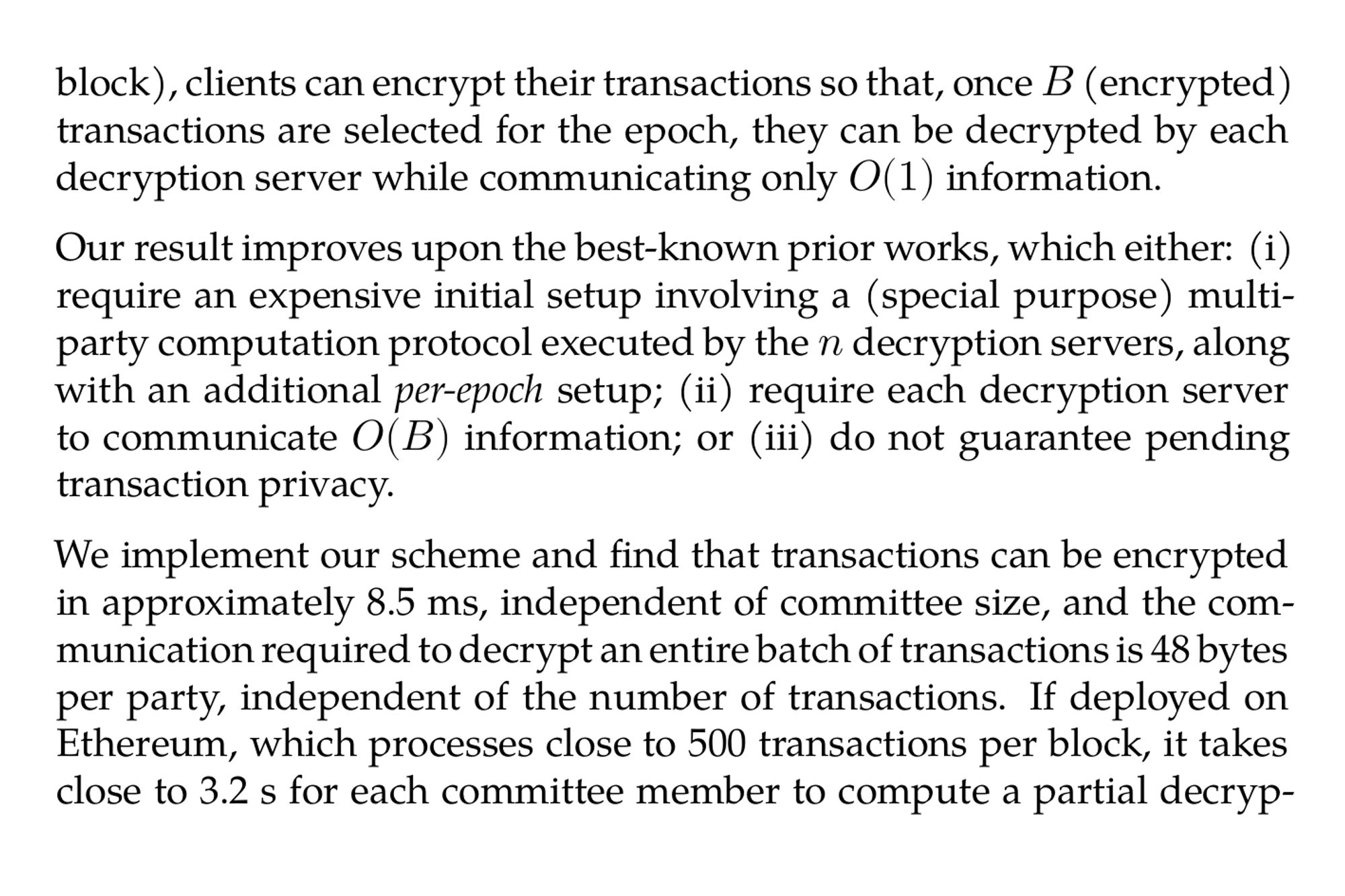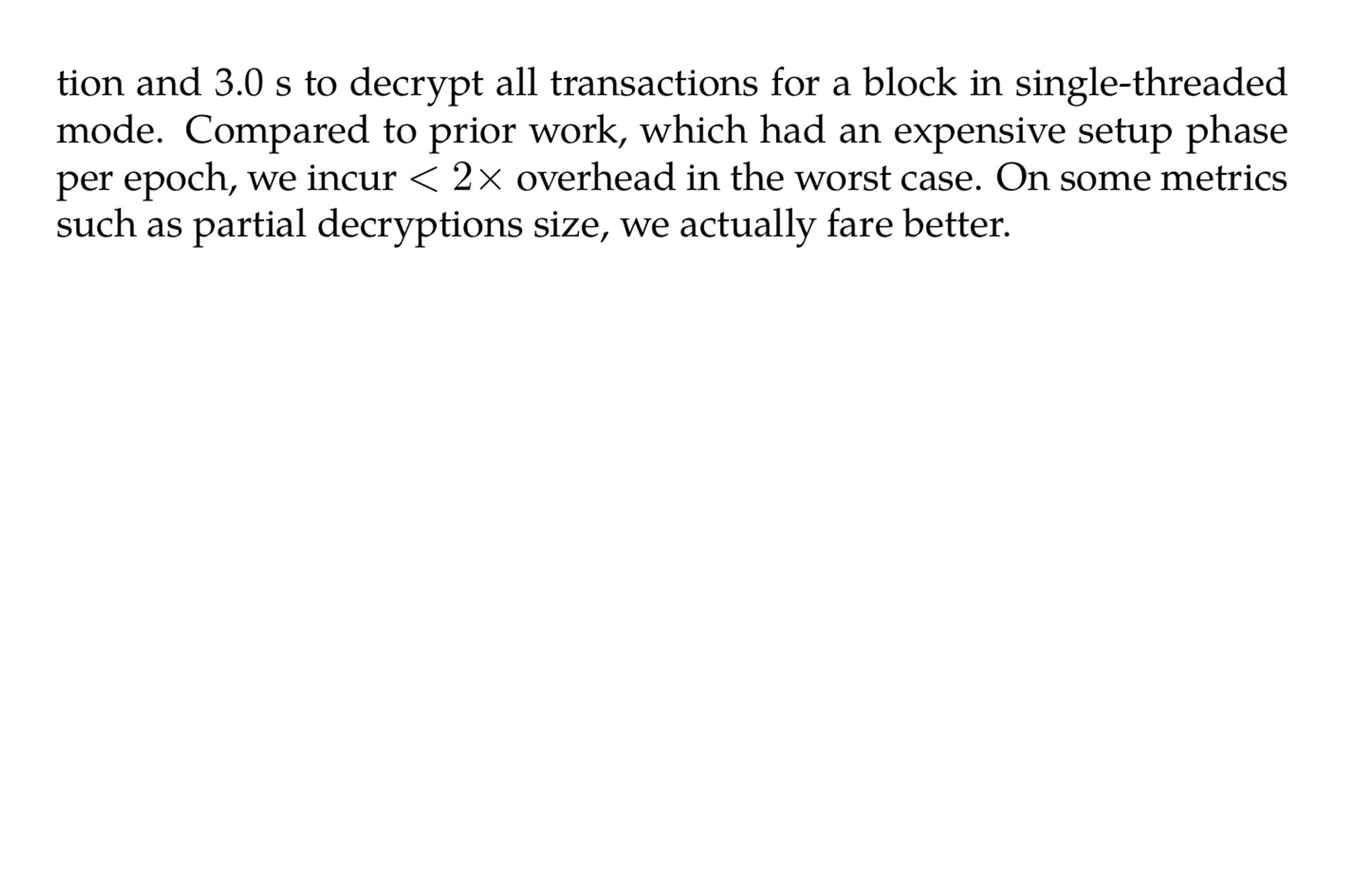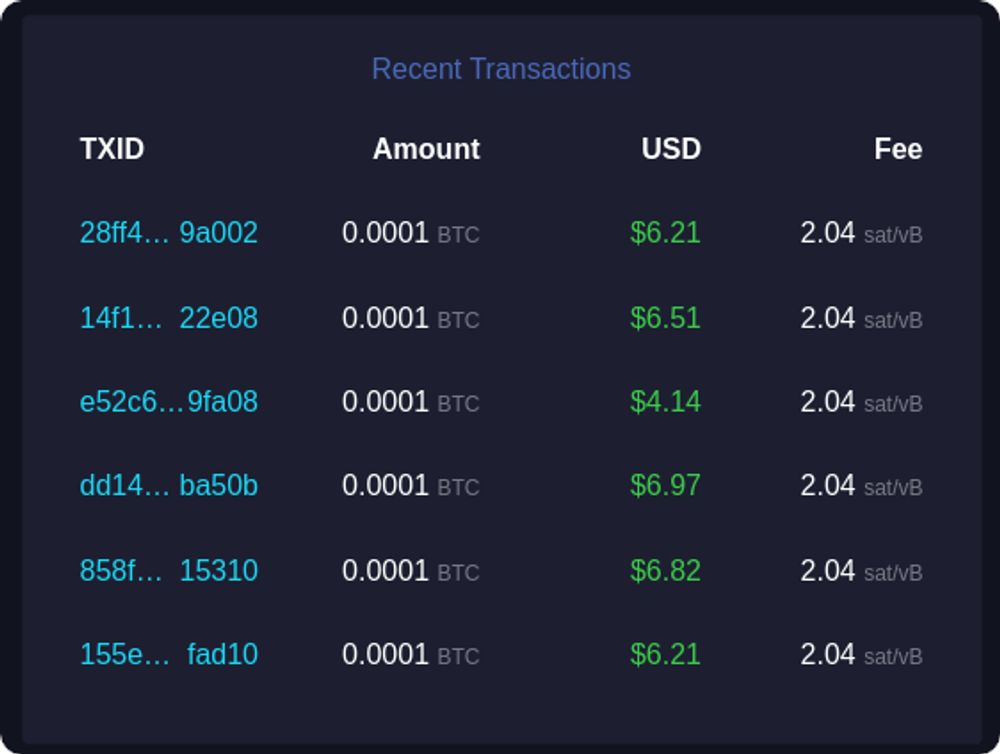Practical Mempool Privacy via One-time Setup Batched Threshold Encryption (Arka Rai Choudhuri, Sanjam Garg, Guru-Vamsi Policharla, Mingyuan Wang) ia.cr/2024/1516



https://github.com/ethereum/ERCs/pull/628/files “In order to facilitate the operation of the alternative `UserOperation` mempool it is important that all implementations of the ERC-4337 protocol have a standardized set of APIs that can be used interchangeably.”
Buyer paid me in BTC. Transaction is stuck in the Mempool. When can I ship? https://www.bitbbq.com/en/113574/ Set up crypto as an option on my ecommerce store. Never had someone use it until recently. They made a purchase over 2 weeks ago and according to support of the wallet this money was …

Set up crypto as an option on my ecommerce store. Never had someone use it until recently.They made a purchase over 2 weeks ago and according to support of the wallet this money was sent to, the transaction is still in the mempool and waiting to be confirmedThe buyer is asking when they're going to get the item.Is it right that I should wait to ship until the transaction is fully confirmed?https://www.reddit.com/r/BitcoinBeginners/comments/1fnunpb/buyer_paid_me_in_btc_transaction_is_stuck_in_the/Posted by OpneFall
Just took a snapshot in mempool of last transactions and noticing how many small transactions are going through under $5 worth of btc. Is this indicative that btc is increasingly becoming used a currency ? https://www.bitbbq.com/en/109126/ Just took a snapshot in mempool of last transactions …

Just took a snapshot in mempool of last transactions and noticing how many small transactions are going through under $5 worth of btc. Is this indicative that btc is increasingly becoming used a currency ?https://i.redd.it/6nsvwbzqncpd1.pngPosted by simonj69
Unconfirmed transaction https://www.bitbbq.com/en/107208/ I put together a transaction in sparrow and went through the entire process to broadcast transaction. After sending, I couldn’t locate in mempool and when I went to review the transaction in sparrow, I’m getting ‘unconfirmed’ Any ideas? …

I put together a transaction in sparrow and went through the entire process to broadcast transaction. After sending, I couldn’t locate in mempool and when I went to review the transaction in sparrow, I’m getting ‘unconfirmed’Any ideas?I did two transactions and received same result. This has never happened beforehttps://www.reddit.com/r/Bitcoin/comments/1fgwypt/unconfirmed_transaction/Posted by Brave-Ad-5364
3. Envio Na tela seguinte, selecione "Send From Wallet" e envie o valor desejado. O processo pode levar algum tempo. Você pode monitorar a transação no próprio site ou, se tiver o hash da transação (tx), utilize Mempool para acompanhar o status.

mempoolのサイトおもろい <mempool.space> #詳解ビットコイン輪読会
